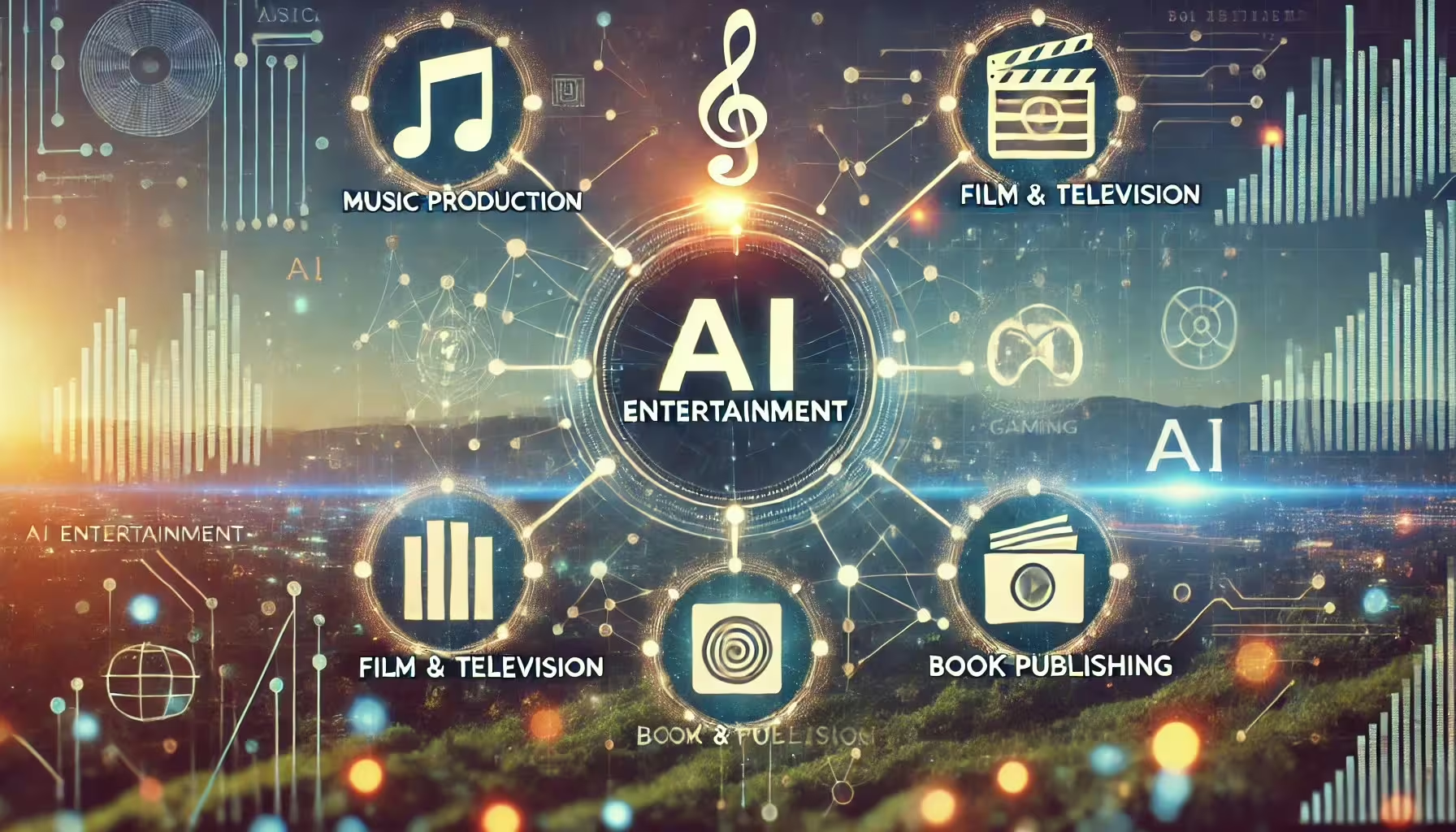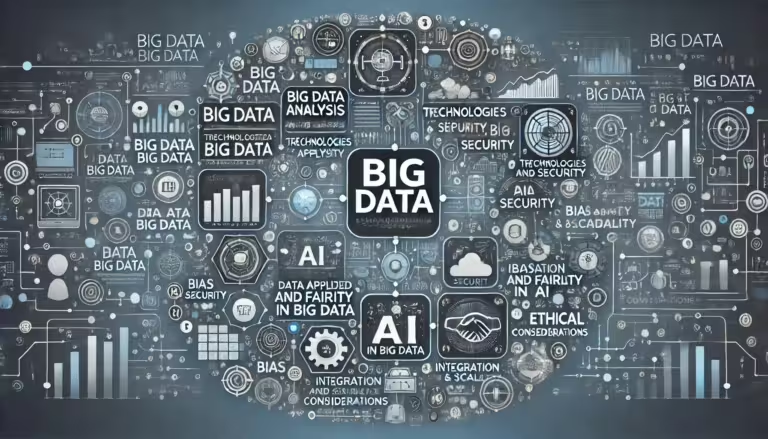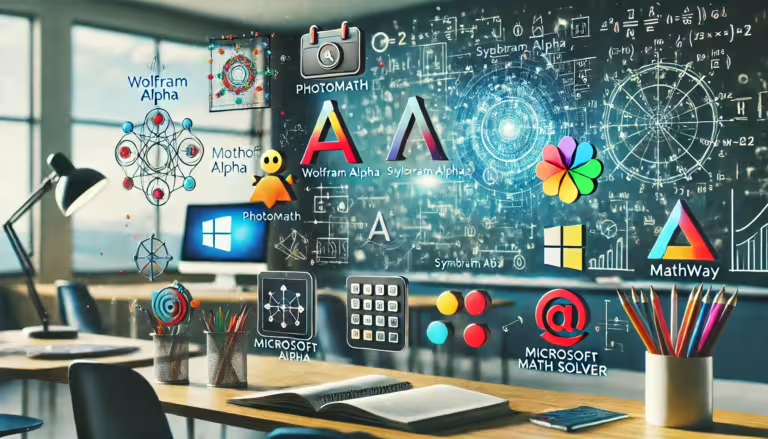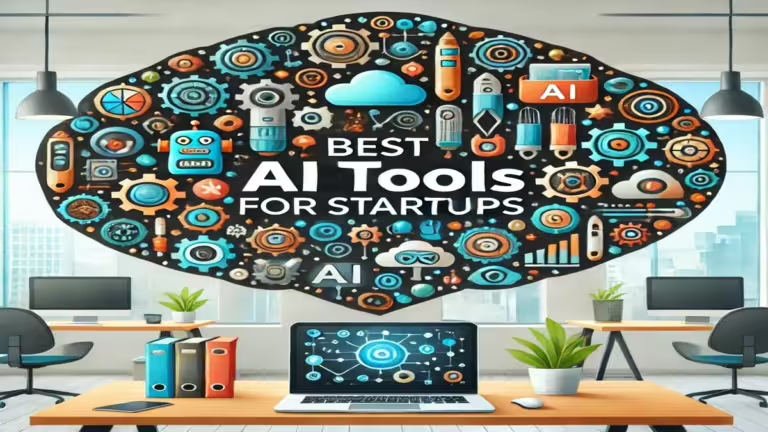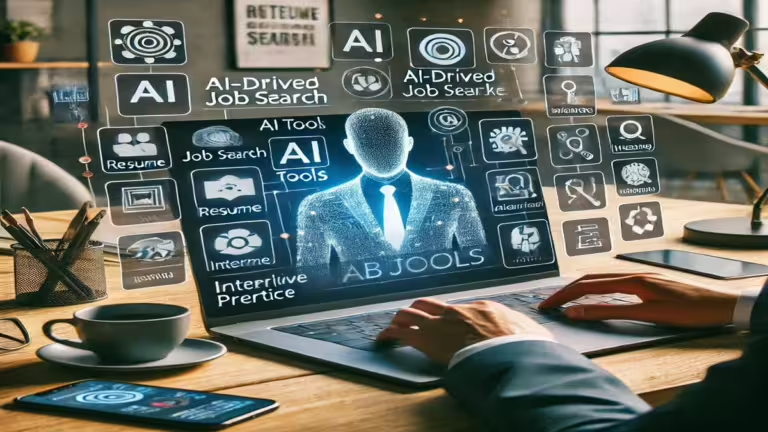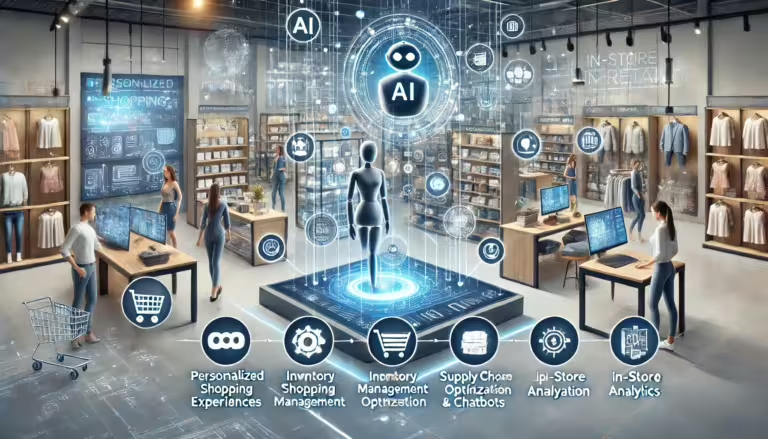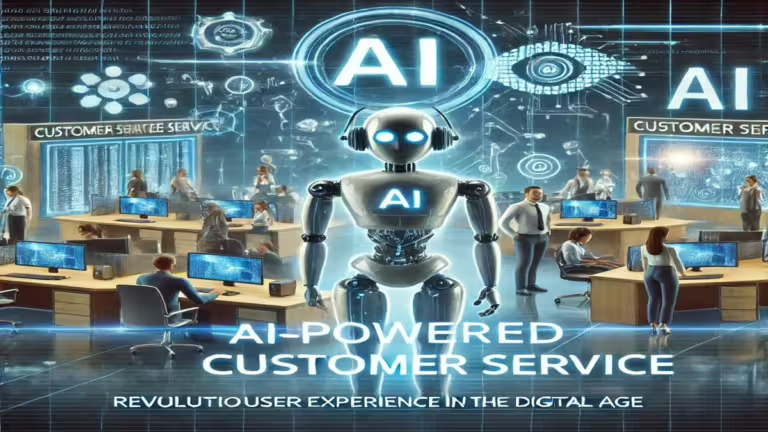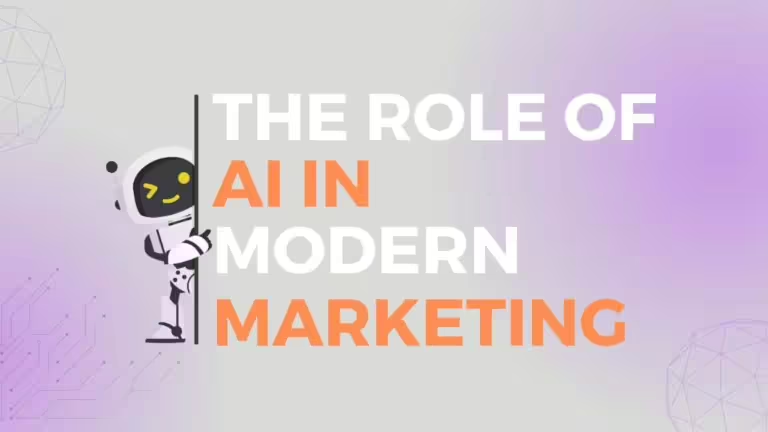The entertainment industry has always been at the forefront of technological innovation, constantly seeking new ways to captivate audiences and push creative boundaries. Artificial Intelligence (AI) has emerged as a game-changing force in recent years, revolutionizing how media is created, distributed, and consumed. From game development and movie production to advertising and music composition, AI has become a catalyst for a new generation of consumer experiences.
This blog post delves into the multifaceted impact of AI on media and entertainment, exploring its role in enhancing creativity, boosting success rates, delivering personalized experiences, and streamlining production processes. We’ll examine how AI’s ability to analyze vast amounts of data, generate content, and identify trends is transforming various sectors of the entertainment industry.
As we navigate through this AI-driven landscape, we’ll discover how this technology is not only augmenting human creativity but also opening up new avenues for innovation and audience engagement. The fusion of AI with human ingenuity is creating a paradigm shift in the entertainment world, promising more immersive, personalized, and efficient media experiences for consumers worldwide.
1. AI-Powered Recommendation Systems
One of the most visible and impactful applications of AI in the entertainment industry is the development of sophisticated recommendation systems. These AI-driven algorithms have become integral to platforms like YouTube, Netflix, Amazon Prime Video, and Spotify, fundamentally changing how consumers discover and engage with content.
How AI Recommendation Systems Work
- Data Collection: These systems collect vast amounts of user data, including viewing history, search queries, ratings, and even the time of day content is consumed.
- Pattern Recognition: AI algorithms, particularly machine learning models, analyze this data to identify patterns and correlations in user behavior.
- Preference Prediction: Based on these patterns, the AI predicts individual user preferences and recommends content that aligns with these predictions.
- Continuous Learning: The system continuously refines its recommendations based on user interactions, creating a feedback loop that improves accuracy over time.
Impact on User Experience
- Personalization: Users receive tailored content suggestions, increasing the likelihood of finding content they enjoy.
- Discovery: AI helps users discover new content they might not have found otherwise, broadening their entertainment horizons.
- Engagement: By consistently recommending relevant content, these systems increase user engagement and time spent on the platform.
Case Study: Netflix
Netflix’s recommendation system is a prime example of AI’s power in content suggestion. The platform utilizes machine learning algorithms to analyze viewing data and suggest content to users. This system is responsible for about 80% of the content streamed on Netflix, showcasing its effectiveness in driving user engagement.
Netflix’s AI considers factors such as:
- Viewing history
- Time of day
- Device used
- Ratings given to other shows
- Viewing habits of similar users
The result is a highly personalized viewing experience that keeps users engaged and subscribed to the service.
Beyond Video: AI Recommendations in Music and Books
Music streaming services like Spotify use similar AI techniques to create personalized playlists and recommend new artists to listeners. In the publishing world, Amazon employs AI to suggest books to readers based on their purchase history and browsing behavior.
These AI-powered recommendation systems have become so sophisticated that they often feel like a personal curator, significantly enhancing the consumer experience across various forms of media.
2. AI in Content Creation
AI’s role in the entertainment industry extends far beyond recommendation systems. It’s increasingly being used in the creative process itself, assisting and sometimes even leading content creation across various media formats.
Music Production
AI is revolutionizing the music industry in several ways:
- AI-Generated Music: Companies like AIVA (Artificial Intelligence Virtual Artist) and Amper Music use AI to compose original music. These systems can create full compositions in various styles, from classical to electronic.
- Assistance in Composition: AI tools help human composers by suggesting melodies, harmonies, and rhythms. This collaboration between AI and human creativity can lead to unique and innovative musical pieces.
- Sound Mixing and Mastering: AI algorithms can analyze and optimize audio tracks, adjusting levels and applying effects to achieve a professional sound quality.
- Personalized Playlists: Beyond recommendations, AI can create dynamic playlists that adapt to a listener’s mood or activity in real-time.
- Voice Synthesis: AI can recreate or simulate voices, opening up possibilities for posthumous releases or AI-human duets.
Film and Television
The film and television industry is leveraging AI in numerous ways:
- Screenplay Writing: AI tools like Scriptbook and HyperWrite assist in screenplay development by analyzing successful scripts, suggesting plot points, and even generating dialogue.
- Pre-production Planning: AI helps in budgeting, scheduling, and resource allocation by analyzing data from previous productions and predicting potential challenges.
- Predictive Success Models: By analyzing factors such as cast, genre, release date, and social media buzz, AI can predict a project’s potential success, aiding investment decisions.
- Video Editing and Post-production: AI-powered tools like Adobe Sensei automate time-consuming tasks such as color correction, audio syncing, and even content-aware fill-in video.
- Visual Effects: AI enhances VFX workflows, assisting in tasks like rotoscoping, motion capture, and creating realistic CGI elements.
Case Study: Disney’s AI-Powered Animation
Disney, through its acquisitions of companies like Pixar and Industrial Light & Magic (ILM), has integrated AI into its animation and visual effects workflows. AI-powered tools assist animators in:
- Character animation
- Motion tracking
- Rendering
- Facial expression generation
By automating specific aspects of animation and VFX, Disney can concentrate on pushing creative boundaries and delivering visually stunning content to audiences around the globe.
Gaming
AI is transforming the gaming industry in several exciting ways:
- Procedural Content Generation (PCG): AI algorithms can automatically create game content such as levels, quests, and even entire worlds. This technique, used by games like “No Man’s Sky,” allows for vast, unique game universes that would be impossible to create manually.
- Adaptive Difficulty: AI can adjust the game difficulty in real time based on player performance, ensuring a challenging but not frustrating experience for each player.
- Non-Player Characters (NPCs): AI enables more realistic and responsive NPCs, with advanced dialogue systems and behavior patterns that adapt to player actions.
- Player Behavior Analysis: By analyzing player data, AI can help game developers understand how players interact with their games, informing future design decisions.
- Esports and Competitive Gaming: AI is used to analyze professional matches, provide insights to teams, and even serve as training partners for pro gamers.
Case Study: Ubisoft’s AI in Game Development
Ubisoft, a leading video game developer, leverages AI for procedural content generation in games like “Watch Dogs: Legion.” In this game, AI generates unique characters with individual backstories, appearances, and abilities, creating a dynamic and diverse game world.
Book Publishing
Even the traditional world of book publishing is being influenced by AI:
- Manuscript Evaluation: AI tools can analyze manuscripts to predict market potential and target audience.
- Editing and Proofreading: AI-powered editing tools assist in grammar checking, style consistency, and even suggesting improvements in narrative structure.
- Cover Design: AI can generate book cover designs based on content analysis and market trends.
- Translation: AI-assisted translation is making it easier to publish books in multiple languages.
Marketing: AI helps in identifying potential readers and optimizing marketing strategies for book promotions.
3. AI-Driven Advertising and Marketing
AI is revolutionizing how the entertainment industry approaches advertising and marketing:
- Data Analysis: AI can process vast amounts of consumer data, including demographics, viewing habits, purchase history, and social media activity, to create detailed consumer profiles.
- Personalized Marketing Campaigns: Using these profiles, AI can create highly targeted marketing campaigns, ensuring that promotional content reaches the most receptive audience.
- Sentiment Analysis: AI tools can analyze social media posts, reviews, and other online content to gauge public sentiment about a product, movie, or show, allowing for real-time marketing adjustments.
- Predictive Analytics: By analyzing historical data and current trends, AI can predict the success of marketing campaigns and even the potential performance of upcoming releases.
- Dynamic Ad Creation: AI can generate and test multiple ad variations, optimizing for the best-performing versions in real time.
- Chatbots and Virtual Assistants: AI-powered chatbots can handle customer inquiries, provide personalized recommendations, and even assist with purchases, enhancing customer service in the entertainment sector.
- Influencer Marketing: AI helps identify the most suitable influencers for specific campaigns by analyzing audience demographics, engagement rates, and content relevance.
Impact on Efficiency and Effectiveness
- Cost Reduction: By targeting ads more effectively, companies can reduce wasted ad spend.
- Improved ROI: Personalized campaigns typically see higher engagement rates and conversions.
- Real-time Optimization: AI allows for continuous campaign adjustment based on performance data.
- Cross-platform Consistency: AI can ensure marketing messages are consistent across various platforms while optimizing for each channel’s unique characteristics.
Case Study: Spotify’s AI in Advertising
Spotify uses AI to create personalized ad experiences for its free-tier users. The system considers factors like listening habits, playlist preferences, and even the time of day to deliver relevant audio ads. This approach has led to higher engagement rates and a better user experience, even for non-paying users.
4. AI Tools Revolutionizing Media Production
A variety of AI-powered tools are reshaping media production workflows:
1. Scriptwriting Tools
- Scriptbook: Analyzes screenplays to predict audience response, box office potential, and even MPAA ratings.
- HyperWrite: Assists writers by suggesting plot points, character development, and dialogue options.
2. Video Editing and Post-Production
- Adobe Sensei: Automates tasks like object removal, color matching, and audio transcription.
- Magisto: Uses AI to automatically edit raw footage into polished videos, selecting the best shots and adding appropriate music and effects.
3. Animation and Visual Effects
- Autodesk’s Maya with Bifrost: Provides AI-assisted tools for creating realistic simulations of natural phenomena like water and fire.
- NVIDIA’s AI-based deep learning technologies: Enhance rendering processes, reducing the time and computational power required for complex visual effects.
4. Audience Analysis and Recommendation
- Canvas: Uses AI to analyze audience’s emotional responses to content across social media platforms.
- Zefr: Provides AI-powered brand suitability and contextual targeting solutions for video advertising.
5. Music Production
- AIVA (Artificial Intelligence Virtual Artist): Composes original music in various styles.
- iZotope’s Neutron: Uses AI for intelligent audio mixing and mastering.
6. Voice and Speech Technology
- Speechmatics: Provides highly accurate speech-to-text capabilities for multiple languages and accents.
- Researcher: Uses AI for voice conversion and synthesis, useful for dubbing and voice-overs.
These tools not only streamline workflows and reduce production time but also open up new creative possibilities, allowing creators to focus on higher-level artistic decisions while AI handles more routine tasks.
5. Impact on Operational Efficiency
AI is significantly boosting operational efficiency in media production:
- Automation of Routine Tasks: AI can handle time-consuming tasks like metadata tagging, content moderation, and basic editing, freeing up human resources for more creative work.
- Predictive Maintenance: In broadcast and production environments, AI can predict when equipment is likely to fail, allowing for proactive maintenance and reducing downtime.
- Resource Allocation: AI algorithms can optimize scheduling and resource allocation for complex production processes, improving overall efficiency.
- Quality Control: AI-powered systems can automatically detect issues in video and audio quality, ensuring high standards are maintained.
- Content Localization: AI assists in the rapid translation and dubbing of content for international markets, speeding up the global distribution process.
- Archiving and Asset Management: AI enhances media asset management systems, making it easier to search and retrieve specific content from vast archives.
- Energy Efficiency: AI can optimize render farms and streaming infrastructure, reducing energy consumption and operational costs.
According to the IBM Global AI Adoption Index (2022), AI is widely used across industries for IT and business process automation, security and threat detection, marketing and sales, and business analytics or intelligence. The media and entertainment sector is at the forefront of this adoption, leveraging AI to streamline operations and enhance creative output.
6. Challenges and Considerations
While AI offers numerous benefits to the entertainment industry, it also presents several challenges and ethical considerations:
- Creative Authenticity: There’s an ongoing debate about the role of AI in creative processes and whether AI-generated content can truly be considered “art.”
- Job Displacement: As AI automates certain tasks, there are concerns about potential job losses in the industry, particularly in areas like video editing and basic content creation.
- Data Privacy: The extensive data collection required for personalized recommendations and targeted advertising raises privacy concerns.
- Algorithmic Bias: AI systems can perpetuate or amplify existing biases if not carefully designed and monitored.
- Over-reliance on AI: There’s a risk of becoming too dependent on AI-driven decisions, potentially stifling human creativity and intuition.
- Copyright and Ownership: AI-generated content raises complex questions about copyright and intellectual property rights.
- Transparency: As AI becomes more involved in content creation and curation, there’s a need for transparency about when and how AI is being used.
- Quality Control: While AI can produce content quickly, ensuring consistent quality across AI-generated material remains a challenge.
- Ethical Use: The potential for AI to create deepfakes or manipulated media raises serious ethical concerns.
Addressing these challenges will be crucial for the responsible and effective integration of AI in the entertainment industry.
7. Future Prospects
The future of AI in entertainment looks promising and exciting:
- Advanced Personalization: AI will enable hyper-personalized content experiences, potentially creating unique versions of shows or movies tailored to individual preferences.
- Interactive Storytelling: AI could power more sophisticated interactive narratives, where viewer choices lead to dynamically generated content.
- Virtual Production: AI will further enhance virtual production techniques, making it easier to create photorealistic digital environments and characters.
- Emotion AI: Advanced AI systems might be able to read and respond to viewer emotions in real-time, adjusting content accordingly.
- AI Collaborators: We may see more direct collaboration between human creators and AI, with AI systems acting as creative partners rather than just tools.
- Immersive Experiences: AI will play a crucial role in developing more immersive AR and VR experiences for entertainment.
- Predictive Content Creation: AI might be able to predict future trends and generate content to meet anticipated demand before it even arises.
- Enhanced Accessibility: AI will improve accessibility features like real-time captioning, audio description, and content adaptation for different abilities.
As AI technology continues to evolve, its integration with the entertainment industry will likely deepen, opening up new possibilities for creativity, efficiency, and audience engagement.
Also Read: Leveraging AI in Retail for a Personalized Shopping Experience
Conclusion
Artificial Intelligence has become an essential force in the entertainment industry, transforming how content is created, distributed, and consumed. From personalized recommendations and AI-assisted content creation to streamlined production processes and targeted marketing, AI is enhancing creativity and efficiency across the board.
While challenges remain, particularly in ethics and creative authenticity, the potential benefits of AI in entertainment are immense. As we look to the future, the symbiosis between human creativity and AI capabilities promises to usher in a new era of innovation in media and entertainment.
The key to success in this AI-driven landscape will be finding the right balance – leveraging AI to enhance and amplify human creativity rather than replace it. As AI continues to evolve, it will undoubtedly open up new avenues for storytelling, audience engagement, and artistic expression, pushing the boundaries of what’s possible in the world of entertainment.
In this exciting new frontier, those who can effectively harness the power of AI while maintaining the human touch that gives entertainment its soul will be well-positioned to lead the industry into its next golden age. The fusion of AI and human creativity is not just changing the game – it’s creating an entirely new playing field for the entertainment world.
